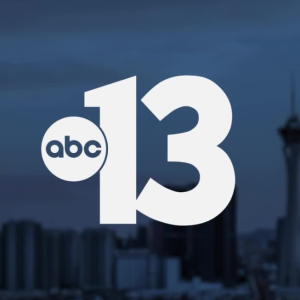LAS VEGAS (KTNV) — The Nevada Republican Party has dropped a lawsuit against the state to appeal a court decision that would allow the state to hold a presidential primary for Republican voters. On Friday, attorneys for the Republican Party filed documents with the Nevada Supreme Court that stated they are dropping their appeal.
In 2021, then-Gov. Steve Sisolak signed a law that mandates Nevada hold a presidential primary with state and county election officials organizing it. At the time, officials said the law was an effort to put Nevada closer to the front of the primary voting states nationwide and that the primary system tends to get higher rates of voter participation. That is scheduled for Feb. 6.
However, the Nevada GOP's First in the West caucus election is set for Feb. 8.
So what do the two elections mean for voters?
State law does not require the Nevada Republican Party to recognize the state's primary results when putting forth a general election candidate. Primaries have voters submit private ballots in elections run by county and state governments. Meantime, caucuses are planned, financed and run by political parties instead of state election officials. The local party members can nominate candidates to represent their political party and voting is public.
If both elections move forward and the Nevada Republican Party chooses to honor the caucus results, the presidential primary results would essentially be disregarded and not count.
The Republican Party originally filed the lawsuit to stop the state's presidential primary in June 2023. However, a Nevada district court ruled against that request in July 2023. State Republicans were filing an appeal to the Nevada Supreme Court but it wasn't heard, which led to the case being dropped on Friday.
State officials have voiced concerns about confusing voters ahead of the election season.
"We're going to spend millions of dollars of taxpayers' money and it's not going to matter," Nevada Republican Party Chair Michael McDonald said in August. "We're literally going to waste millions of dollars on a primary that's going to silence people's voices."
However, state Attorney General Aaron Ford said that's not true.
"A [presidential primary] election would simplify the process," Ford's office said in July. "Caucuses can be hard for voters to understand, especially for those with a language barrier, but an easier process would encourage voters to participate."
Former Nevada GOP chair Amy Tarkanian, who helped organize the 2012 caucus, said a there a number of problems with the caucus system, including voters who are unable to participate or who can't stay throughout the drawn-out process.
"We left a caucus for a good reason," she said in August. "It was confusing."
Gov. Joe Lombardo said he tried to mediate the matter but that the two elections expose internal rifts in the Republican party, both in Nevada and nationally.
"It's unfortunate," Lombardo said in October. "I've had numerous conversations, both with the state party and other individuals involved and it's falling on deaf ears."
The last GOP caucus in Nevada was during the 2016 election cycle since all of Nevada's delegates were allocated to former President Donald Trump in 2020.
All Nevadans who are active registered voters, unless they've opted out, will receive a ballot for the Presidential Preference Primary by mail. On Tuesday, the Clark County Registrar of Voters said those sample ballots are officially in the mail and early voting starts on Jan. 27.
Voters can check if their registration is up to date head of the 2024 Election Cycle here. You can also register to vote here. You can learn more about voting requirements for the First In The West caucus here.




